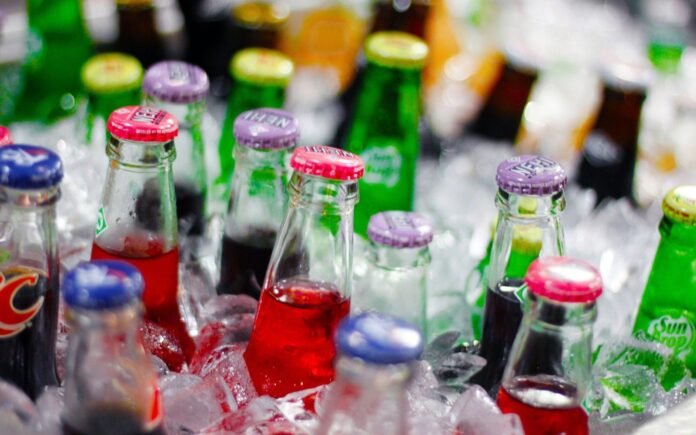Cold drinks, including sodas, iced teas, energy drinks, and flavored waters, are popular worldwide. While they offer a refreshing break from the heat, these beverages often contain high levels of sugar, caffeine, and artificial ingredients that can negatively impact health. This blog delves into the hidden effects of cold drinks on your body and why moderation is key.
High Sugar Content
1. Weight Gain and Obesity:
– Cold drinks are often loaded with added sugars. Devouring these high-calorie beverages daily can lead to weight gain and obesity. Extra sugar ingestion is an important contributor to the obesity epidemic.
2. Type 2 Diabetes:
The high sugar content in cold drinks can cause blood sugar spikes, increasing the risk of developing type 2 diabetes. Frequent consumption of sugary beverages is linked to insulin resistance and metabolic syndrome.
3. Dental Problems:
Sugar in cold drinks feeds bacteria in the mouth, leading to the production of acids that erode tooth enamel. This process can cause cavities and tooth decay over time.
Artificial Ingredients
1. Artificial Sweeteners:
Many cold drinks, especially diet sodas, contain artificial sweeteners like aspartame, sucralose, and saccharin. While these sweeteners reduce calorie intake, they may have adverse effects, such as altering gut bacteria and potentially leading to metabolic issues.
2. Preservatives and Colorings:
Cold drinks often contain preservatives and artificial colorings, which have been linked to various health concerns, including hyperactivity in children and potential carcinogenic effects.
Caffeine and Energy Drinks
1. Caffeine Overload:
Many cold drinks, specifically energy drinks and certain sodas, hold high levels of caffeine. Extreme caffeine intake can lead to restlessness, anxiety, insomnia, and increased heart rate.
2. Heart Health:
High caffeine consumption from energy drinks can increase blood pressure and has been linked to cardiovascular problems. Combining energy drinks with alcohol or intense physical activity can further exacerbate these risks.
Impact on Bone Health
1. Bone Density:
Phosphoric acid, mostly found in sodas, can mess with calcium absorption, leading to lowered bone density and a higher risk of osteoporosis. This effect is particularly alarming for individuals who intake cold drinks in place of calcium-rich beverages like milk.
Hydration and Kidney Health
1. Dehydration:
Despite their liquid form, cold drinks can contribute to dehydration. The high sugar and caffeine content can have diuretic effects, leading to increased urine production and fluid loss.
2. Kidney Stones:
Regular absorption of sugary and caffeinated cold drinks can higher the risk of kidney stones. These drinks can donate to the making of stones by nurturing dehydration and changing the body’s balance of minerals.
While cold drinks can be a refreshing treat, their hidden health effects make it crucial to consume them in moderation. Opting for healthier alternatives such as water, herbal teas, and natural fruit juices can help mitigate these risks. By understanding the potential negative impacts of cold drinks, you can make more informed choices that promote overall health and well-being.
Remember, moderation is key. Enjoy cold drinks occasionally, but prioritize healthier hydration options to maintain optimal health. Your body will thank you for it!



